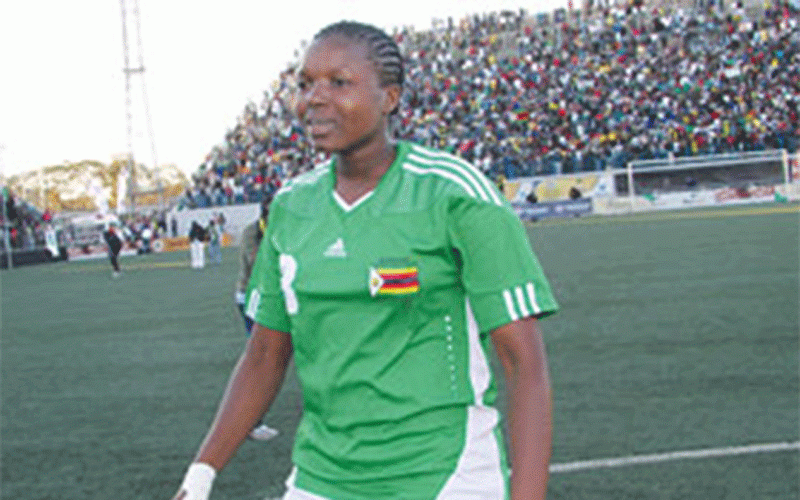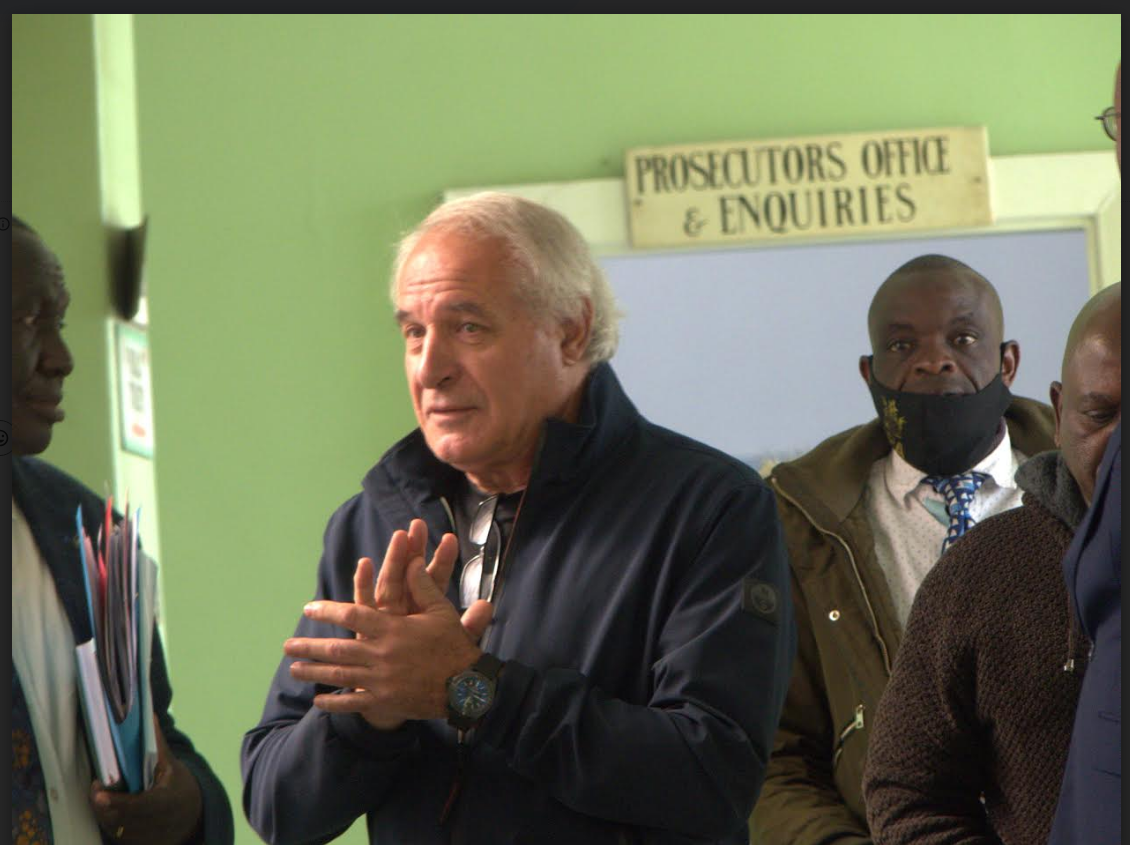
Philani “Beefy” Ncube is known to be a very witty and free talking character.
Very few people take the former Bulawayo City coach seriously.
As the country resumed football activities after the Covid-19 lockdown last year, the nomadic coach who is now based in Botswana, made a bold, shocking and also revealing claim.
“Eighty percent of Zimbabwean football players are hooked on drugs,” he said.
His statement, came after a match between Bulawayo City and Highlanders on March 11.
“These boys have taken drugs as part of their lifestyles,” Ncube warned then.
“The effects of their drug-taking tendencies will be so negative in the next few months.
“The Premier Soccer League (PSL) and the Footballers Union of Zimbabwe (FUZ) have to take action before the situation escalates,” Beefy warned.
- Rambanapasi sets up thriving building supplies business
- Celebrating the “legend” of Harare MUMC choir
- Rambanapasi sets up thriving building supplies business
- Celebrating the “legend” of Harare MUMC choir
Keep Reading
Of course no one took him seriously.
But a few months later, Ncube was vindicated as Harare City player Jerry Chipangura was convicted of dealing in drugs in early December last year and is now serving a 14-month jail term while former Mighty Warriors star Rufaro Machingura died early this month after succumbing to a drug abuse related illness.
While Ncube’s figures cannot not be verified due to lack of a database on drug use in Zimbabwe, FUZ president Desmond Maringwa confirmed there has been a spike in drug use by local football players of late.
“Its scary,” he told this publication.
He attributed the rampant use of drugs to the prolonged football break and anxiety resulting from Covid-19.
“The issue of drug and substance abuse in football and sport in general has become a big problem in the country.
“It's becoming a pandemic and a lot of careers are perishing,” Maringwa said.
“The problem was exacerbated by the Covid-19 pandemic because players were idle.
“Players didn't know what would happen to their careers, so they ended up engaging in these kinds of things.”
A high profile player who spoke to this publication on condition of anonymity, admitted that there was rampant use of drugs by professional players.
“It’s a problem in the sports sector, not just football. It's a small number who don’t use drugs in the league,” he said.
“The only difference is on the type of the drugs that players take.”
He said marijuana and broncleer remained popular with players due to their affordability, although there are fears it is now competing with crystal meth, known as mutoriro or guka in street lingo.
“We are aware of the risks of using drugs, but we don’t have many options,” the player said.
“Drugs help us relax and deal with depression.
“As local footballers we face a lot of problems chief among them is low income so drugs help us to forget about a lot of things.”
Maringwa said his organisation had embarked on various programmes aimed at conscientising local players against drug abuse.
He, however, said clubs should take the lead.
“As a union we are trying to help,” the former Dynamos star said.
“We have some programmes we do with clubs and during those team visits we travel with experts who talk to players on the dangers of using drugs.
“Clubs also need to do more and be more responsible in terms of conscientising the players on the dangers of drug use because they are with the players every day.
“All the stakeholders need to come together to come up with solutions.”
He added, “We have always been encouraging clubs to do medicals on their players before the start of the season and when they bring in new players like what happens everywhere else in the world so that they can detect if players use drugs or not.
“Players engage in drugs and other substance abuse because in the absence of these medicals, they know they will get away with it.”
World Anti-Doping Agency (Wada)-accredited doctor Nick Munyonga said the prevalence of substance abuse among football players could not be ascertained due to lack of testing.
“These are issues that we are getting to hear from a social point of view,” Munyonga said.
“Obviously we have tried to put in place systems to enhance education on doping issues because from a sport point of view we can only comment on how rampant it is if we are testing the players and we are getting positive tests... because the liability principle says once we find a substance in a player's sample then the player is taking drugs.
“But at the moment because no testing is happening in the local football sector we can't speak with confidence about how rampant the problem of drug use is.”
He added: "From our discussions with the PSL in terms of what we can do even from last year, it's a budgetary issue.
“Just the analysis of samples using the Wada-accredited laboratories costs about US$550 to do one test so the budgetary element restricts us.
“So what we have tried to do is that this year, because Wada provides a small grant for out of competition testing, we will try to randomly pick one or two teams and select two or three players and test them using that grant.
“We are also trying to utilise the budget that the Ministry of Sports has put aside for testing to look at how we can also do some testing.
He added, “We face the challenge that because our players are not playing in international competitions due to the Fifa ban, we again fell short on the testing because the ban affects us from accessing tests that are available when participating in those competitions.
“And even when we get admitted back by Fifa, it might demand that our players undergo a number of tests unless we will be using only those players that are currently playing abroad who are subjected to these tests regularly.
“This is what happens when an athlete retires and wants to come back.
“They are subjected to six months of testing, so these are things that can happen, especially looking at how we are getting to hear things on the social platforms that there is rampant abuse of drugs.”
But former Mighty Warriors coach Rosemary Mugadza said a lot needed to be done before Zimbabwe loses more footballers to the scourge of drugs.
She said the death of Machingura was just the tip of an iceberg.
The former utility player was the star of the show when the Mugadza-coached side lifted the Cosafa Women Championships in 2011.
Her career soon took a nosedive, and her demise was blamed on drugs and substance abuse.
“She was very disciplined by that time, full of energy, " Mugadza recalled.
“It's rare to find such a talent nowadays.
“ It's very heartbreaking that we lost such a talent at a very young age.
“We hope the younger players will learn from it, and know what to take and notto take into their bodies.
“They must be disciplined on and off the field of play.
“Young players should know that football is a profession that you need to look after so that it can look after you.
"It's sad we lost her, but I will always cherish the memories I shared with her personally in the Mighty Warriors setup.
“I never had any problems with her in terms of discipline.
“Things happen in life depending on the path that we choose.
“Players should choose and associate with the right people, who tell them the right things to do in life.
“If Rufaro had associated herself with the right people, people who encouraged her in her career, I believe she would have been alive today.
“If we have the likes of Rudo Neshamba and Sheilla Makoto still playing I would have hoped that Rufaro could have continued playing.
“It's sad for us as a nation to lose such a great gem that we had because of the wrong path she took.”
Authorities are aware of the crisis, and President Emmerson Mnangagwa has warned against the “unbecoming trends” threatening “the fate of our youth”, stressing the urgent need to “redouble our collective fight against this new phenomenon”.
A former Dynamos and Warriors striker is said to have become a drug addict and is now homeless.
Zimbabwean cricket lost talented batsman Brendan Taylor, who was given a three-and-half year ban after admitting to snorting cocaine in India where he also received money to influence matches.
With Zimbabwe doing so well in cricket over the last few months one would imagine how much stronger the team would have been with Taylor in the ranks.
But such precocious talent was lost and now he can only watch from the sidelines while fans wonder what could have been of this team.
To his credit he has made moves to live a clean life by quiting alcohol and he also had a stint in rehab.
He has tried to be the example that he ought to be as an influential person that he is in society.
Taylor is not the only one in cricket with another prominent cricketer said to have had stints in rehab as he fights drug addiction.
Zimbabwe Cricket has been working hard to help players who might be facing such problems.










